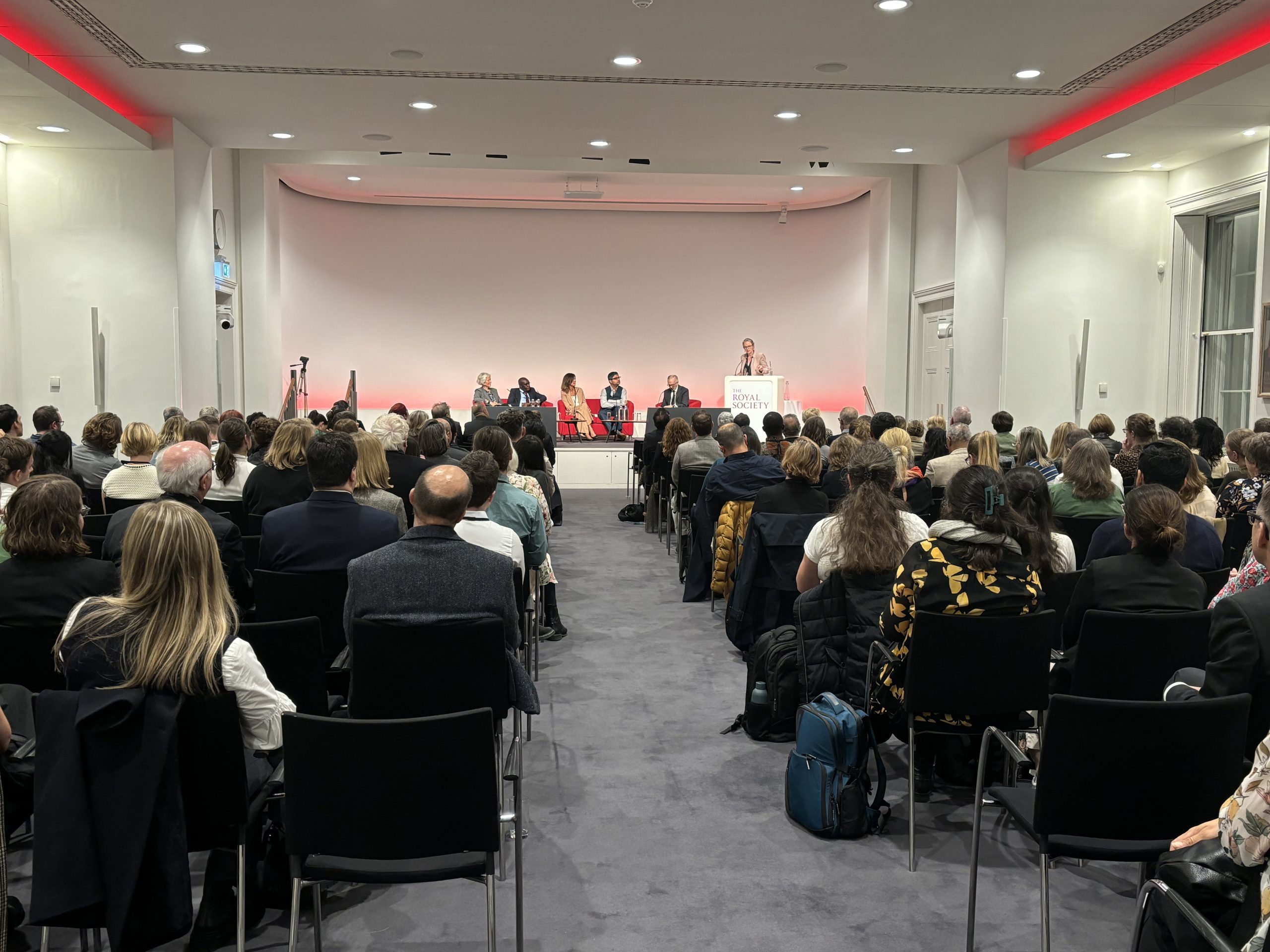by Executive Director, Maggy Heintz
This year’s UKCDR Annual Stakeholder Event took place on 12 of September 2024, at the Royal Society, London. We opted for an in-person event, with an opportunity for networking and a research showcase.
The value of coming together
Whilst we acknowledge the broader inclusivity and wider representation allowed by virtual events, there is immense value in facilitating an in-person gathering, especially at such a critical time in the UK political landscape. Following a general election, a change of government, and ahead of a spending review, convening 160 participants to discuss the role of research in progressing international development was a testimony – not only to the importance and timeliness of the topic, but also – to the strength of UKCDR as a convenor.
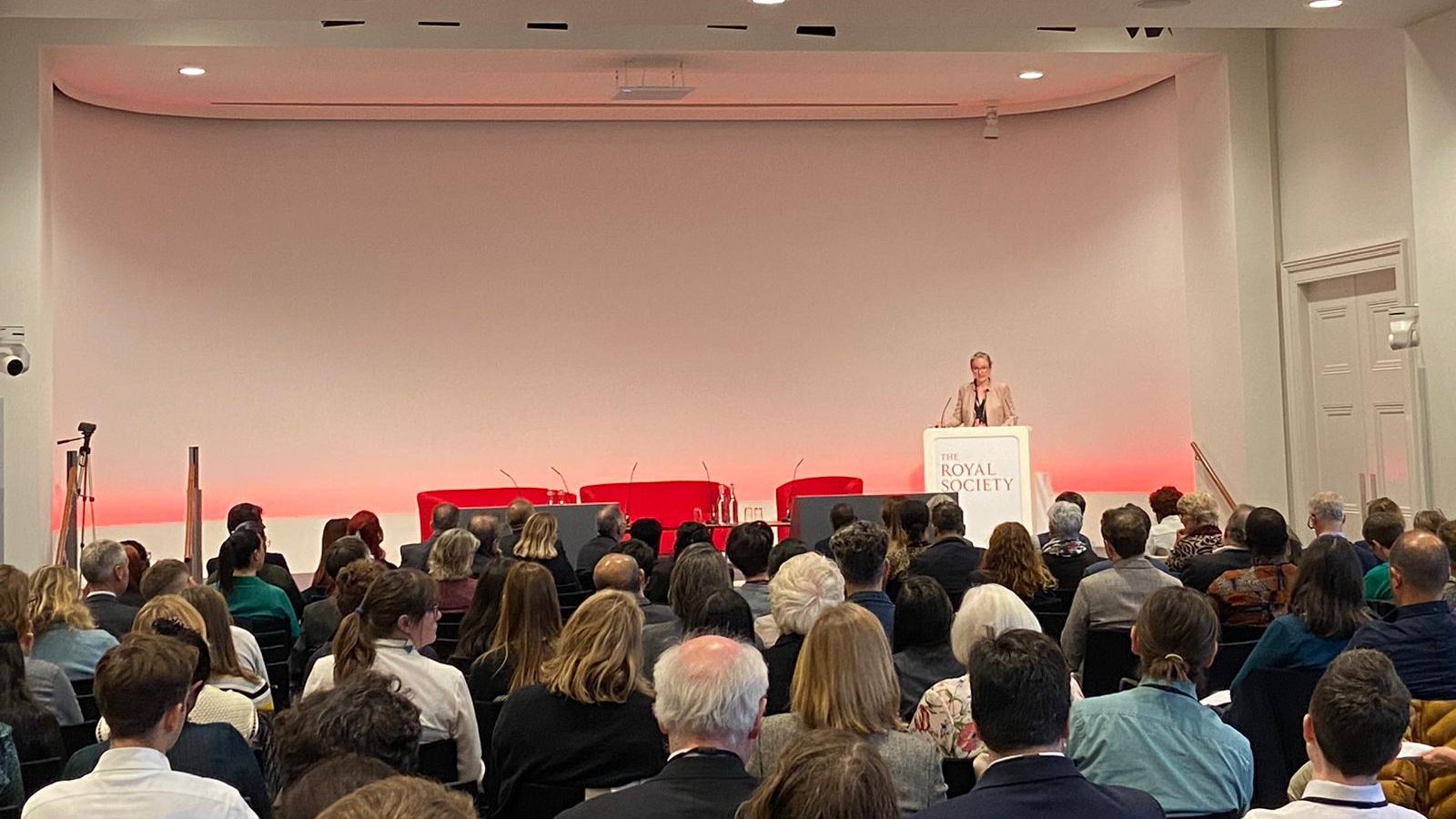
With the intention to move away from the sometimes highly rehearsed format of panel discussions, we had the immense pleasure of Ehsan Masood, Bureau Chief for Editorials, Africa and the Middle East at Nature, facilitating a free-flowing conversation with our panelists. The complexity of the international development research landscape calls for a large variety of perspectives on the topic. From funders’ priorities (Dr Jaideep Gupte, Director of Research, Strategy and Innovation at the Arts and Humanities Research Council) to government roadmaps (Professor Charlotte Watts, Chief Scientific Adviser at the Foreign, Commonwealth, and Development Office), we also heard about the importance of research for international development from the perspective of an African impact focused think-tank (Dr Joanes Atela, Founder and Executive Director of the Africa Research and Impact Network) and from academia (Professor Melissa Leach, Executive Director at the Cambridge Conservation Initiative and former Director of the Institute of Development Studies).
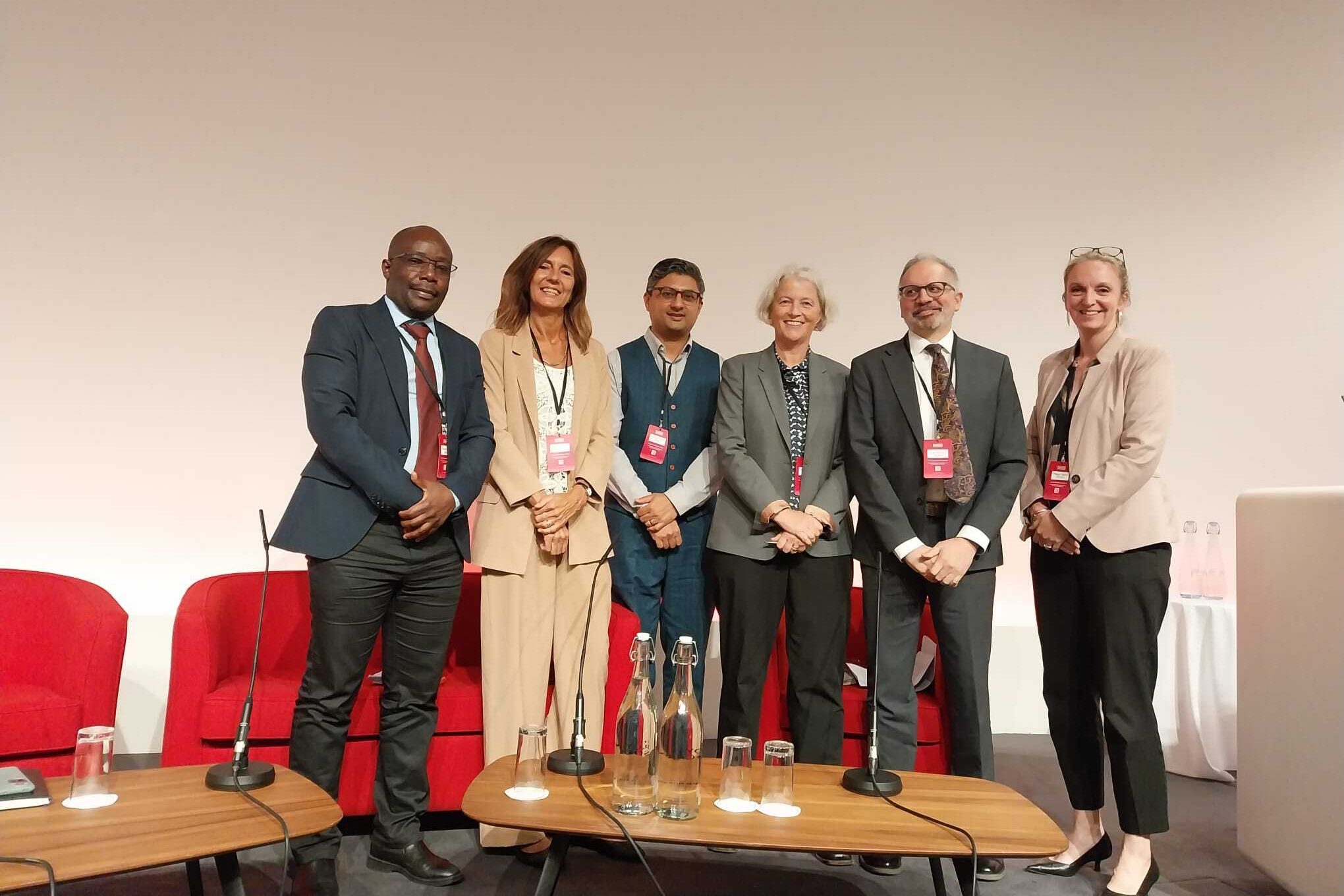
Photo credit: UKCDR
International development research and the UK
The UK ranks top in ODA funding for research and development but competing demands and the volatility of our current world require us to continuously make the case for the importance of research for international development.
The value of science in development is critical in the context of Low and Middle-Income Countries. From an African perspective, science is core to Agenda 2063, the Africa’s development blueprint to achieve inclusive and sustainable socio-economic development. As evidenced by the Science, Technology, and Innovation Strategy for Africa (STISA) 2024, research will be crucial in areas such as: agriculture, energy, environment, health, infrastructure development, mining, security, water, and much more.
Yet, we shouldn’t lose sight of the contextuality of evidence and impact. Joanes Atela emphasised the need to consider the ‘software of impact’: equitable partnerships, ethics, transdisciplinarity, and safeguarding. It is important to bear in mind that impactful development is not only driven by technical assistance. The imperative to invest in capacity strengthening and empower actors in the Global South to drive the research agenda is paramount.
“Do we need more money in new research, or do we need to invest in these softwares (of impact)?”
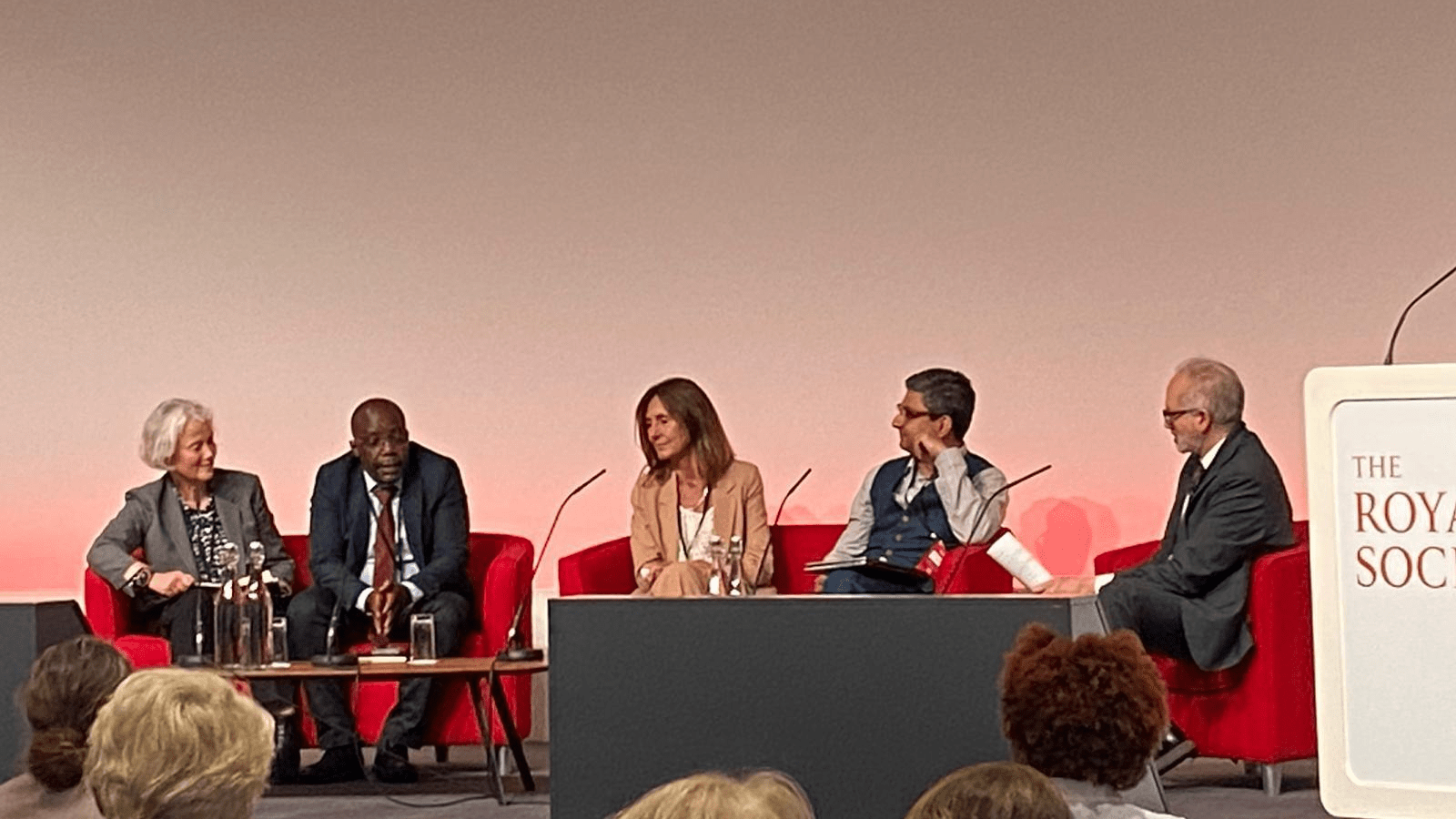
Hearing from our panelists
From an academic perspective, Melissa Leach highlighted that investment in research results in even more transformative change if we consider the power of working across disciplines, localisation, and understanding the local context. Social sciences and humanities are often in the driving seat, but are equally often considered last-minute additions to STEM-driven research proposals. Jaideep Gupte reminded us that development issues involve complex ethical dilemmas which can and should be informed by the arts and humanities. He called for the need to rethink our values, develop creative thinking skills, and listen to people with lived experience.
“We need to create spaces to learn from failure”
Regarding the direction of travel, Charlotte Watts reminded us of the importance of recognising and celebrating the achievements of the past 20 years. The cross-government white paper published in September 2023 recognised the complexities characteristic of international development. It gave an evidence-led roadmap for international development and portrayed a positive account of the role of research and innovation in supporting its ambitions and, within this research ecosystem, the importance of equitable partnerships. Perceived as a source of motivation by the scientific community, the white paper is still current, despite recent political changes.
The breadth of perspectives that were present gave hope that research was perceived as core to international development to a diverse forum of stakeholders, including: researchers, research managers and funders, science and technology diplomats, think tank representatives, policymakers, and students. This vision is supported by their awareness of and commitment to supporting the profound contributions of research toward overcoming global challenges.
Gathered around our display of posters showcasing concrete examples of impactful research, stakeholders networked well past the event’s end. The content of discussions, the engagement, the networking… all gives indeed much hope for the future.
My main take away messages from the event were: trust, respect, and intentionality.
“We need to be intentional, develop a truly shared vision, and strengthen Southern leadership”
Thank you to our team
Last but not least, I would like to acknowledge the incredible work and dedication of the entire UKCDR team in bringing this event to fruition!
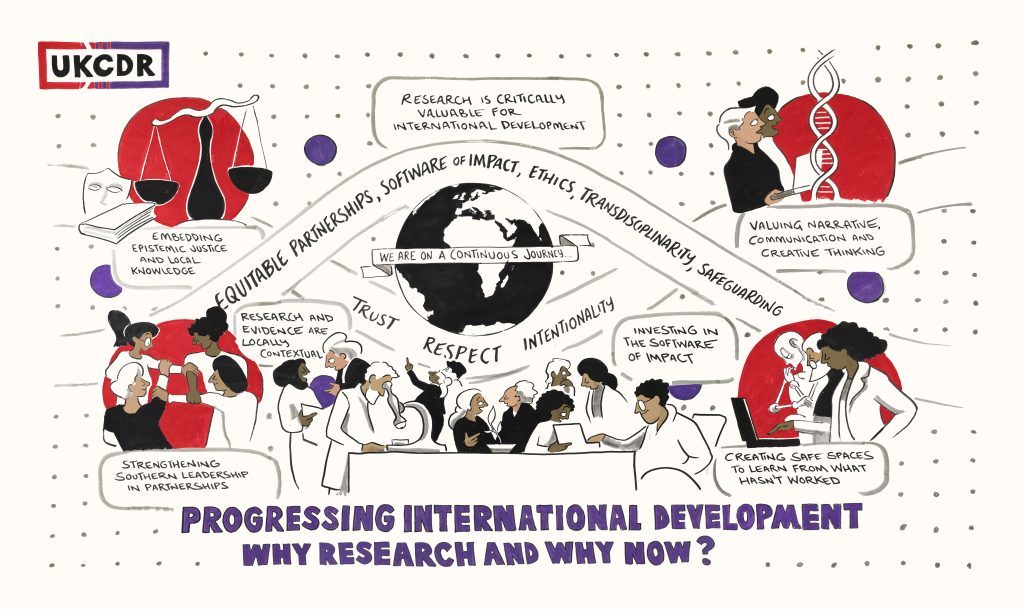
Image credit: Jonny Glover
